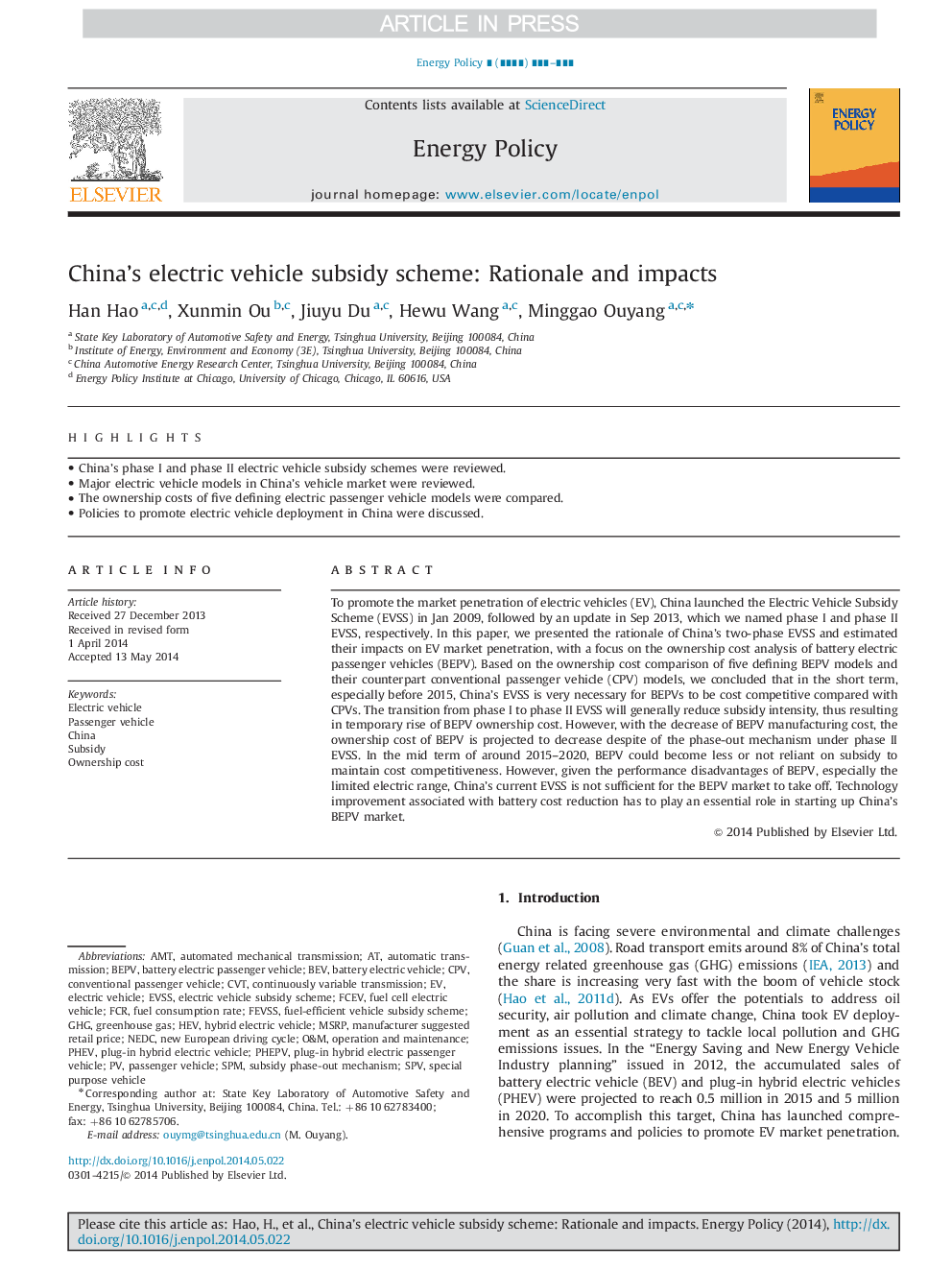| Article ID | Journal | Published Year | Pages | File Type |
|---|---|---|---|---|
| 7402102 | Energy Policy | 2014 | 11 Pages |
Abstract
To promote the market penetration of electric vehicles (EV), China launched the Electric Vehicle Subsidy Scheme (EVSS) in Jan 2009, followed by an update in Sep 2013, which we named phase I and phase II EVSS, respectively. In this paper, we presented the rationale of China's two-phase EVSS and estimated their impacts on EV market penetration, with a focus on the ownership cost analysis of battery electric passenger vehicles (BEPV). Based on the ownership cost comparison of five defining BEPV models and their counterpart conventional passenger vehicle (CPV) models, we concluded that in the short term, especially before 2015, China's EVSS is very necessary for BEPVs to be cost competitive compared with CPVs. The transition from phase I to phase II EVSS will generally reduce subsidy intensity, thus resulting in temporary rise of BEPV ownership cost. However, with the decrease of BEPV manufacturing cost, the ownership cost of BEPV is projected to decrease despite of the phase-out mechanism under phase II EVSS. In the mid term of around 2015-2020, BEPV could become less or not reliant on subsidy to maintain cost competitiveness. However, given the performance disadvantages of BEPV, especially the limited electric range, China's current EVSS is not sufficient for the BEPV market to take off. Technology improvement associated with battery cost reduction has to play an essential role in starting up China's BEPV market.
Keywords
special purpose vehicleFCEVPHEVGHGNEDCBEVHEVCPVSPVCVTFCRSPMAMTO&MAutomatic transmissionContinuously variable transmissionPlug-in Hybrid Electric VehicleFuel cell electric vehicleHybrid electric vehicleElectric Vehicleoperation and maintenanceFuel consumption rateBattery electric vehiclePassenger vehiclenew European driving cycleChinaSubsidyGreenhouse gas
Related Topics
Physical Sciences and Engineering
Energy
Energy Engineering and Power Technology
Authors
Han Hao, Xunmin Ou, Jiuyu Du, Hewu Wang, Minggao Ouyang,
